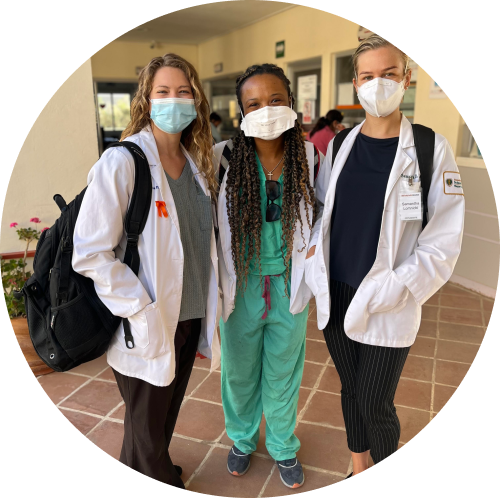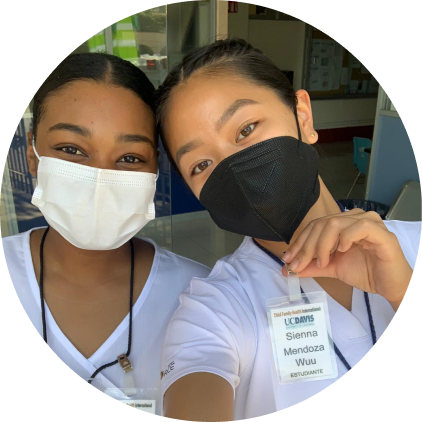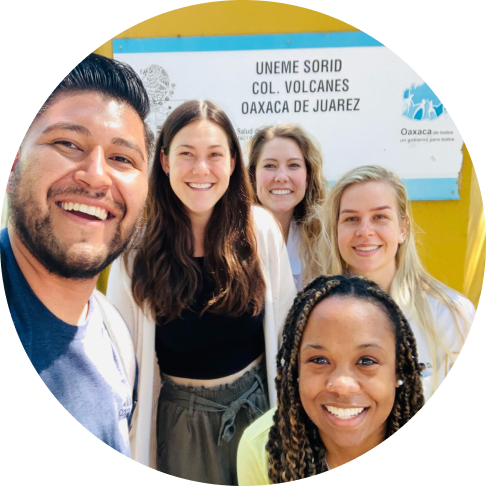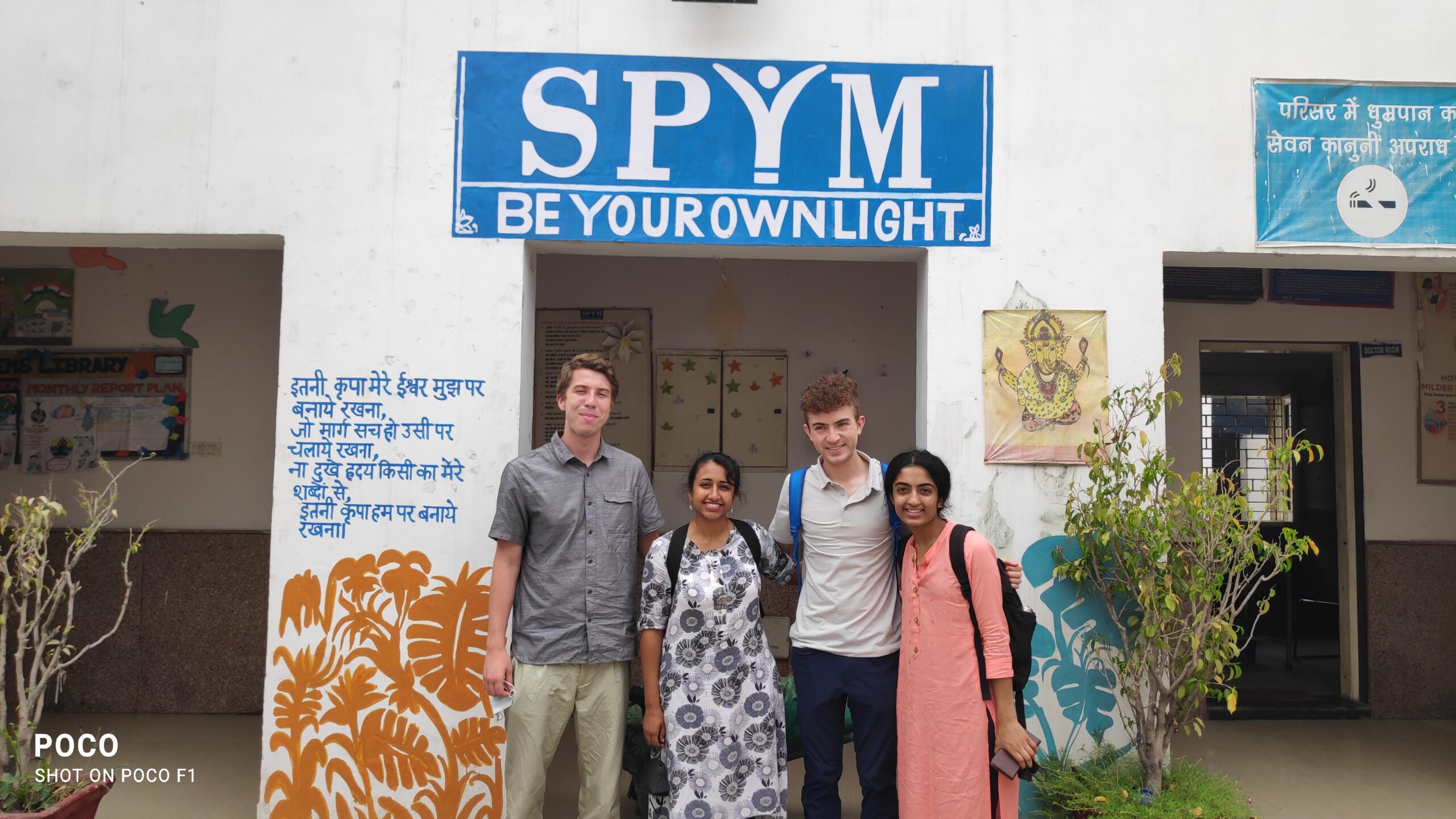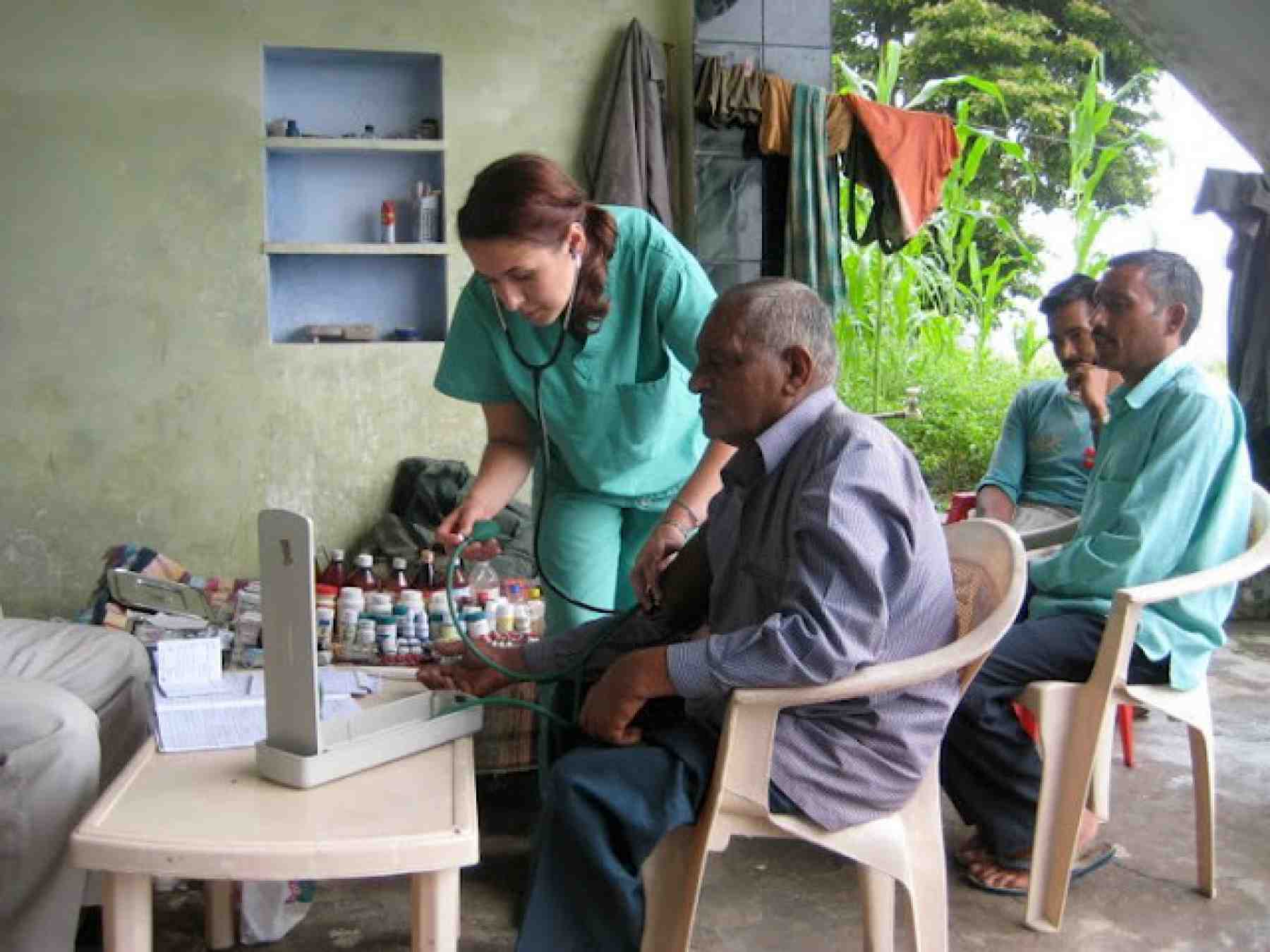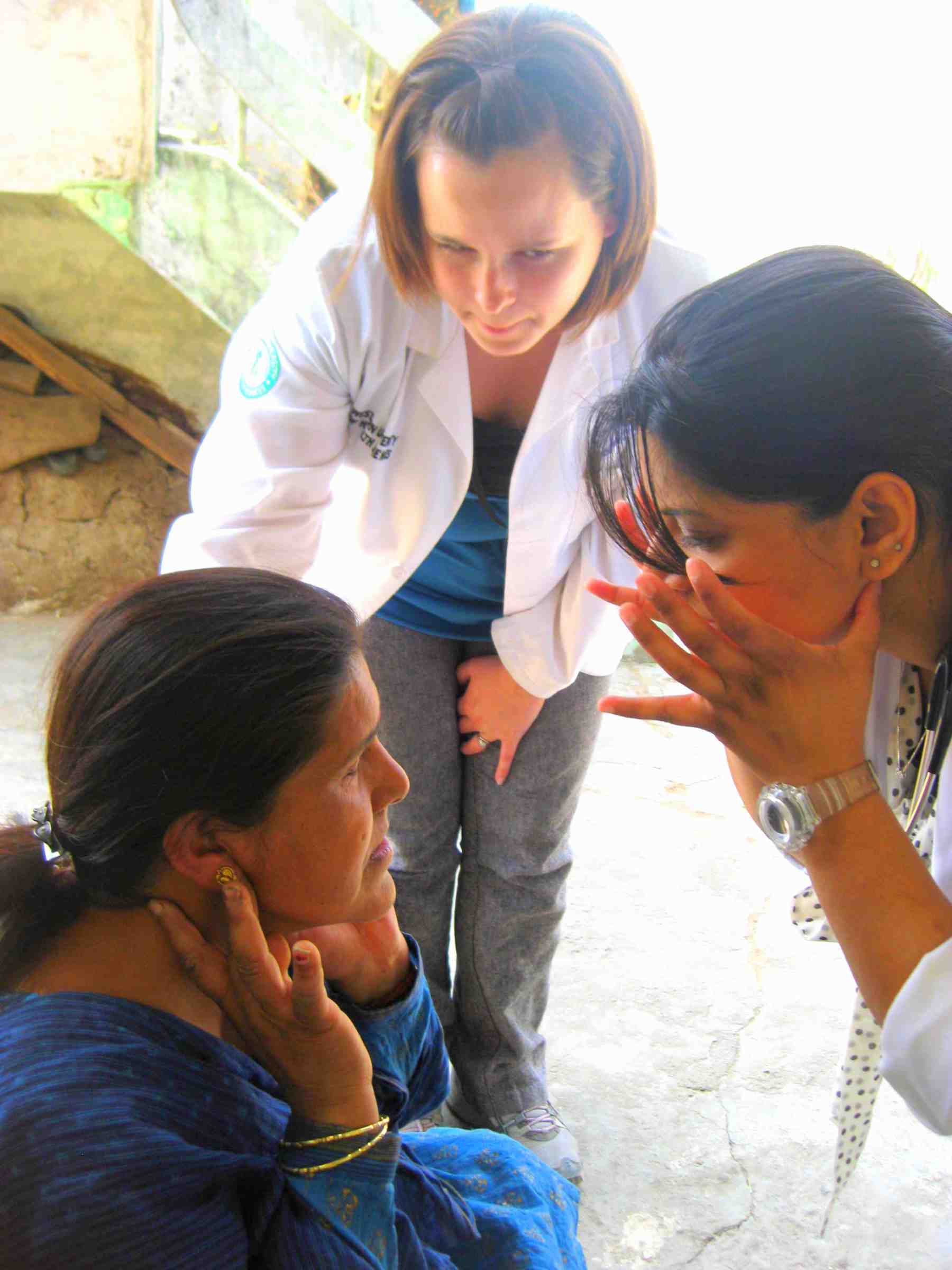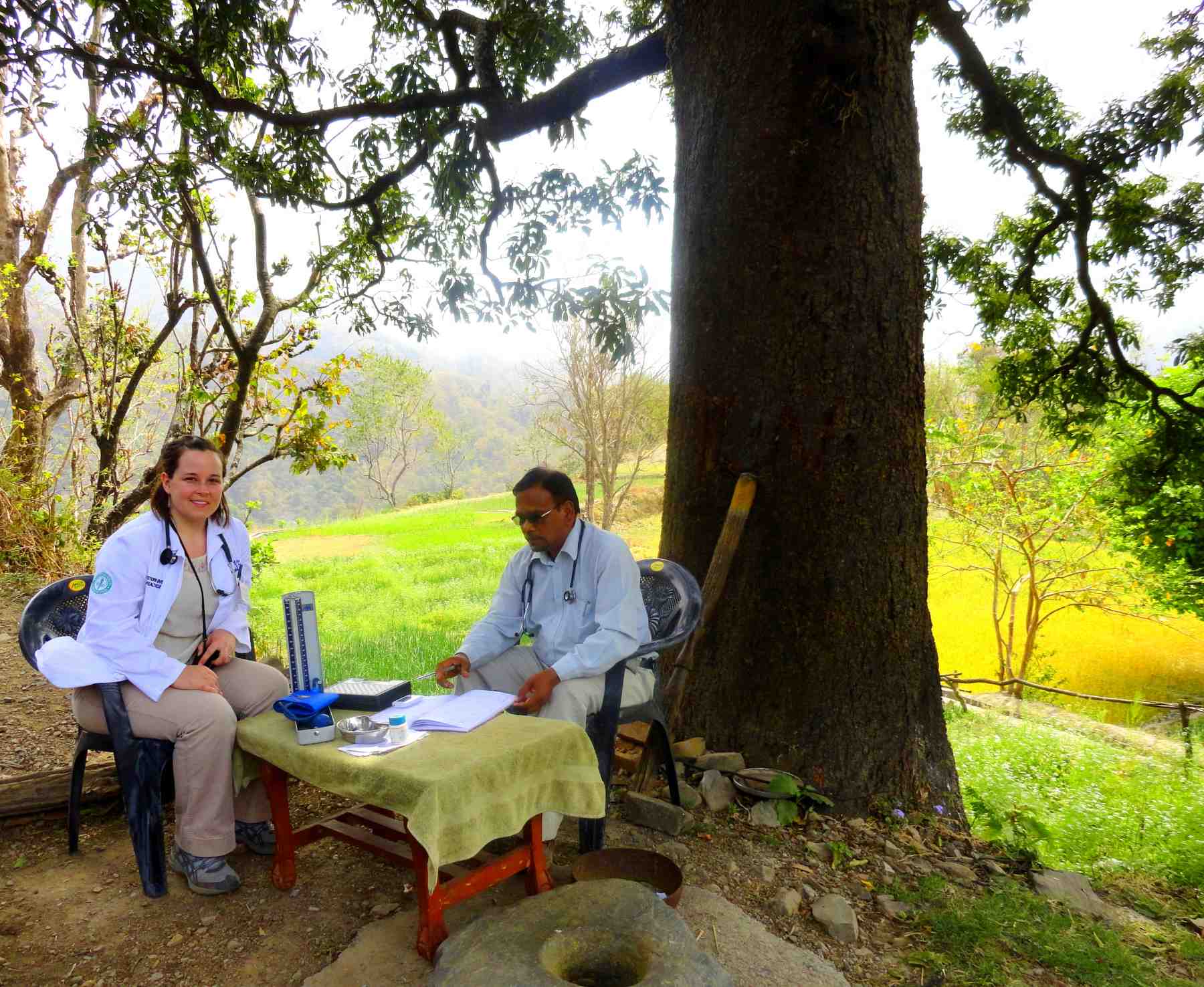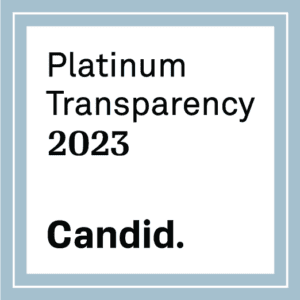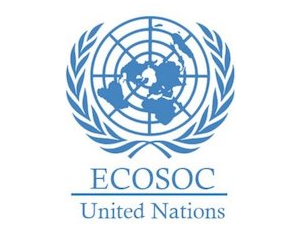- Home
- All programs
- Global Health in India (Delhi)
Program overview
New Delhi, India is the second most populous city in the world, featuring dazzling sites and stunning historical and architectural landmarks. Determinants of health in India include poverty, malnutrition and inadequate public healthcare. Despite these challenges, India offers a myriad of innovations in public health education and delivery.
During this program, learn from various NGO’s, CBO’s and public sector agencies working to improve public health outcomes. Understand the lingering impacts of India’s caste system and realities of implementing public health initiatives within a highly diverse population. Key program themes include sanitation and hygiene, social services safety net, health education and harm reduction for HIV/AIDS, programs for marginalized populations and determinants of health, among others. Interested students can also request to focus their time in Delhi on Palliative Care or Ophthalmology.
Become immersed in Indian culture while living in an apartment in residential south Delhi. Frequent museums, restaurants, and shops and visit World Heritage sites like the Qutub Minar and Humayun’s Tomb. Participants may also choose to organize weekend trips to the spectacular Taj Mahal and Agra Fort, Amritsar and Rishikesh.
About this program
- Location
- Accommodations
- Arrival Information
- What's Included
- Things to Do
- A Day in the Life
- Alumni Advisor
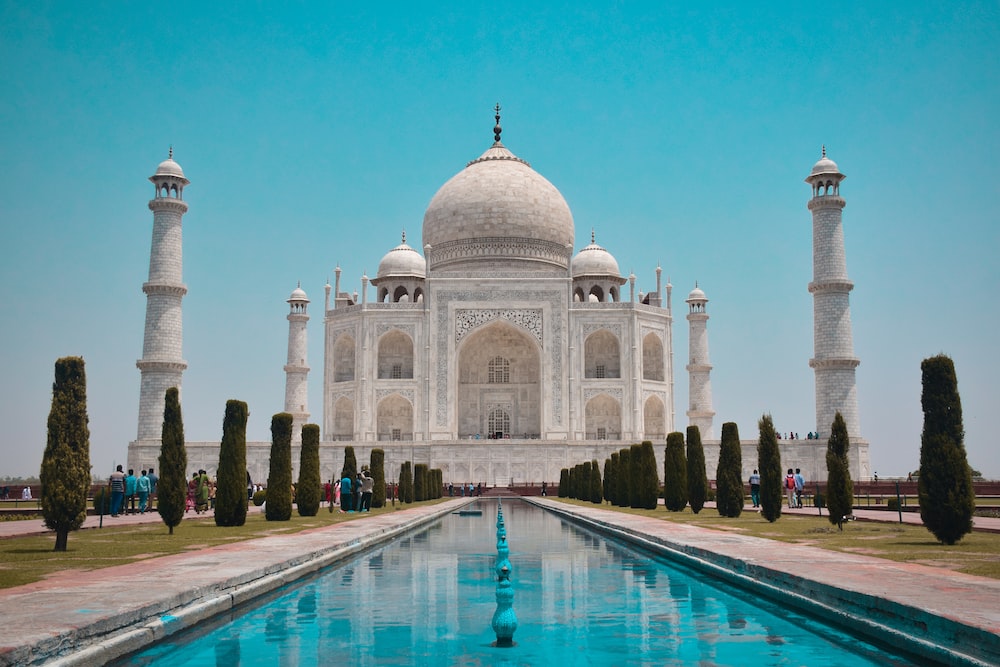
Indian culture is unique and one of the oldest. There is amazing cultural diversity throughout the country. Each state can be considered a country within a country. If compared, there is hardly any culture in the world that is as varied and unique as India’s.
With almost 1.4 billion people, India is home to bustling cities, lush mountains and a diverse population. There are over 30 languages spoken across India’s 28 states and 8 union territories. The country is also the birthplace of 4 of the world’s major religions—Hinduism, Buddhism, Jainism, and Sikhism-and home to 40 UNESCO World Heritage Sites. India boasts a rich history, vibrant and colorful culture, and diverse and magnificent landscapes, including architectural wonders like the Taj Mahal and Golden Temple.

Program participants will find their home away from home in comfortable apartments, screened by CFHI Local Coordinators in Delhi and following CFHI’s health and safety guidelines. Nestled within a residential area of Delhi and close to the CFHI India Director’s home, these 2-3 bedroom apartments offer the perfect blend of comfort and authenticity, with excellent access to public transportation, banks and ATMs, a department store, a movie theatre, and internet cafes. At the apartment, there will be a local caretaker on site who will cook and provide cleaning. CFHI scholars share the apartment and rooms with fellow program participants.
Going beyond mere lodging, staying in a local apartment provides a unique opportunity to learn about the local culture. Accommodations include two meals per day. At the welcome orientation, participants will be instructed on culture and work etiquette to have the best experience in both the home and the health settings.

Participants should arrive in Delhi, India on the program start date. They will be picked up from the airport by a CFHI representative and taken to their housing. A welcome orientation will take place the Sunday or Monday after arrival.
US citizens and others should apply for an Indian tourist e-visa in advance. More information and specific instructions on visa applications will be provided by CFHI after acceptance into the program.

What’s Included
CFHI Program fees include the majority of your on the ground costs. As a nonprofit, CFHI strives to keep fees low and offers fundraising opportunities, scholarships and discounts.
Pre-Departure Support
- Program advising and support via email, phone, and web meeting from CFHI’s Central Leadership team
- Detailed online Pre-Departure Training that includes modules on program logistics (flights, visas, immunizations, and more), intercultural learning, introduction to health realities at your program site, and much more
On-Site Services
- Airport pick-up upon arrival and transportation with a local CFHI representative to your program lodging
- Welcome orientation 1-2 days after arrival covering safety, transportation, and other logistics
- CFHI Local Team that provides instruction, logistical support, and 24/7 emergency response
- Meetings and lectures on local healthcare system, socio-economic determinants of health and current cultural/historical topics.
- Placement and coordination of clinical and any public health activities (if relevant)
- Accommodation and two meals per day
- Local cell phone or support obtaining a local SIM card
- International emergency medical and evacuation insurance (unless waived by your university or institution)
Post-Return Resources
- Opportunities to engage as a CFHI Alumni Ambassador, reviewing scholarship applications, speaking on CFHI panels, and more
- Access to CFHI alumni-only social media group/s featuring news and career opportunities related to Global Health
- CFHI alumni newsletter highlighting events, professional development opportunities, resources, and ways to stay involved
Uniquely, more than 60% of CFHI student program fees go directly to the communities they will be visiting, benefiting the local economy at large.
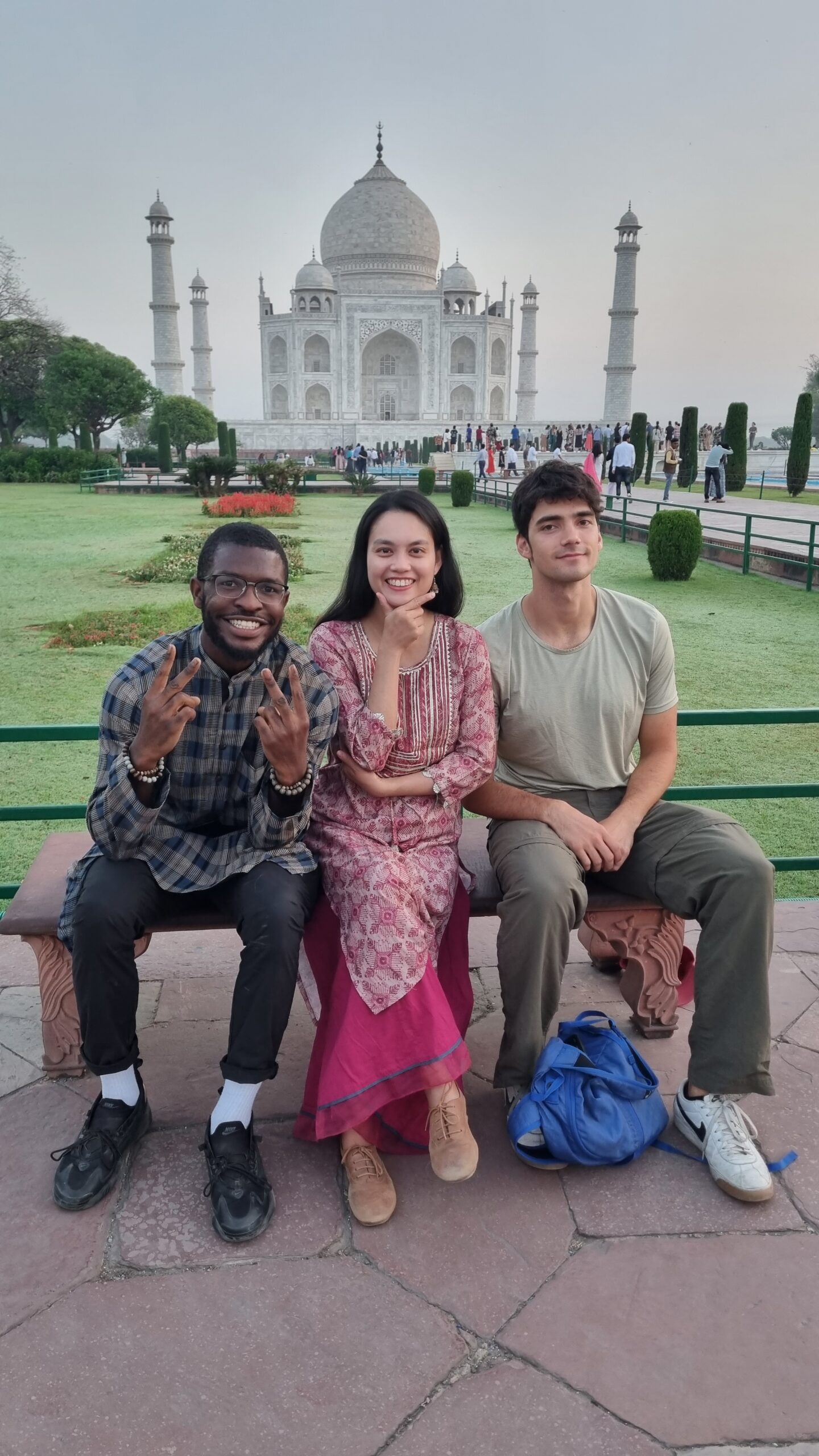
CFHI participants have free time during most evenings and weekends and may choose to organize weekend trips to nearby destinations and take part in cultural activities offered within Delhi itself.
Visit Delhi’s numerous museums, restaurants, and shops or visit World Heritage sites like the Red Fort or Humayun’s Tomb. CFHI participants may also choose to organize trips to the spectacular Taj Mahal and Agra Fort.
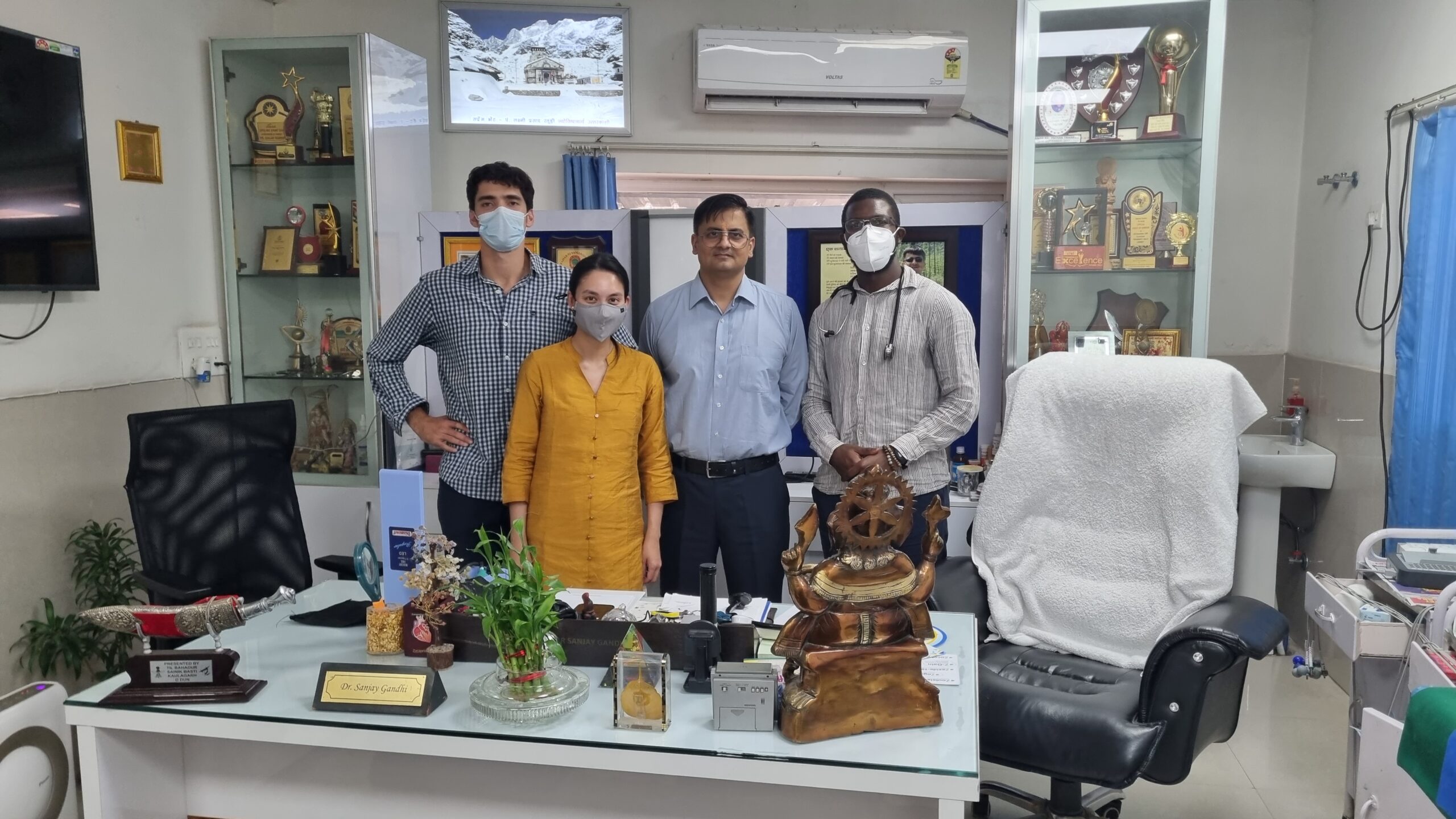
During your time in Delhi, you will visit the old Delhi area and the rotations will include the TB DOTS (Directly Observed Treatment, Short Course) Center, needle exchange and safe disposal system, shelters for homeless run by the NGOs with the support of Government of Delhi and other health outreach activities.
The other two weeks in Delhi could include Sulabh International, Venu Eye Center, DOTS Center, Voluntary Counseling and Training Centre in a truck-yard, a potential day visit to Village Alwar, Rural Hospital, a brief interaction with the a pediatrician about the health systems and compulsory vaccinations for infants and children, juvenile de-addiction center and a transgender center, depending on the availability of program sites.
A typical day lasts from 10:00 AM – 4:00 PM, though on some days, you may start or finish earlier.
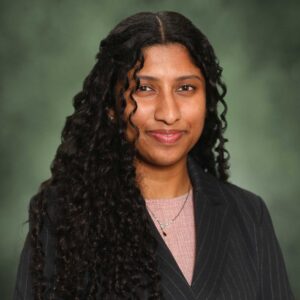 Hello! My name is Thanuri Navarathna.
Hello! My name is Thanuri Navarathna.
I am the alumni advisor for the CFHI New Delhi, India programs. I participated in the Global Health in India (Delhi) program for four weeks in July 2023. I work as a research technician at a Veterans Affairs hospital infectious disease research lab, and I hold an MPH in Epidemiology along with a graduate certificate in Genomics and Bioinformatics from UTHealth Houston. In the future, I would like to pursue a doctoral degree in infectious disease and global health. Outside of work, I enjoy reading, dancing, and trying new foods.
Clinical Rotations & Public Health Placements
Meet the Local Team
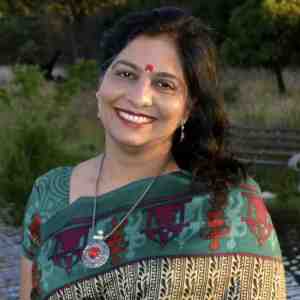
Hema Pandey - CFHI India Director
CFHI’s India Programs Director, Hema Pandey, coordinates activities for all CFHI programs in India. Hema has been instrumental in establishing CFHI’s growing presence in India, developing new program sites and researching CFHI’s growth potential in-country. She has worked for CFHI since 2005. With more than 25 years of experience in the health field, Hema has handled a wide range of projects for government and non-government organizations in India, including the Indian government’s Year of Scientific Awareness (YSA) 2004, which highlighted needs and issues related to disaster preparedness, health & nutrition and soil & water conservation.
Hema has represented CFHI at important international conferences and events including being on a Panel at the United Nations Head Quarters in New York in 2010, participating in discussion about “Women in Leadership Roles in Male Dominated Societies”.
Hema enjoys helping CFHI students achieve academic and personal goals, and developing leadership skills during their time in the program. She loves to volunteer in her free time and has been actively involved with Delhi Education Department working in the development of government schools and student learning in South Delhi. She is also the honorary Member Secretary for an Ethics Committee. Hema enjoys photography and traveling with family.
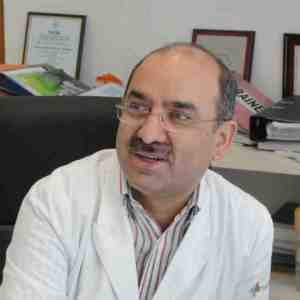
Dr. Vimarsh Raina - New Delhi Medical Director
The role of CFHI Medical Director is to arrange clinical and public health placements, supervise participant experiences at these sites, and provide lectures on various health topics.
A pathologist by profession, and an innovator by heart – Dr. Raina earned his MBBS degree from University of Jammu, MD in Pathology from Punjab University and PGDHA degree from Delhi University.
Being a person who reached zenith in his career at a very early stage in his life, he has always been attracted to unstructured, untouched problems. Dr. Raina is a successful entrepreneur and a leader in multiple businesses and social organizations. He has always worked in unexplored domains and has successfully translated these on-ground.
Dr. Raina is the founder and president of a Not for Profit- GeneBandhu, where he dedicates 10% of his time. He is also the co-founder of Aakash Hospital, South Extension New Delhi. Dr. Raina was the former Director of Laboratory Services and transfusion Medicine at Medanta-The Medicity. Prior to Medanta, he served as Senior Consultant at Indraprastha Apollo Hospital in the Molecular Genetics Department.
This CFHI program is ideal for participants who are 19 years of age or older, who have an interest in fields related to public health, ophthalmology, and/or end-of-life and palliative care. You do not need to be a student to be eligible for this program; mid-career professionals, GAP year learners, and others are also welcome. This program will provide an in-depth overview of public health, ophthalmology, and/or end-of-life and palliative care in India through rotations within various NGO’s and clinics in Delhi. To confirm your eligibility, please read CFHI’s general eligibility requirements.
The Sustainable Development Goals are a global roadmap set forth by the United Nations General Assembly to end poverty, protect the planet, and ensure the well-being of all individuals by the year 2030. This program highlights the following SDGs:
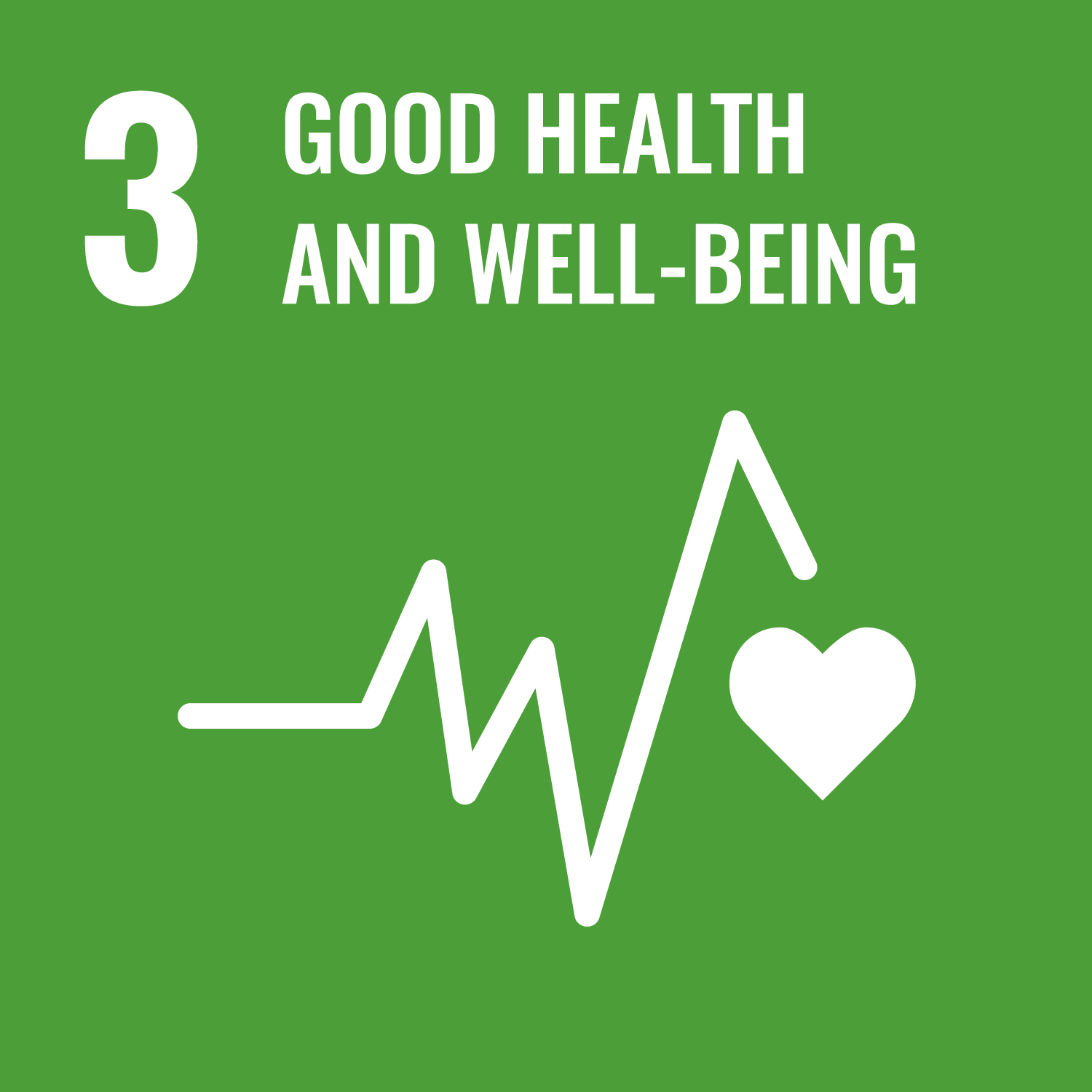
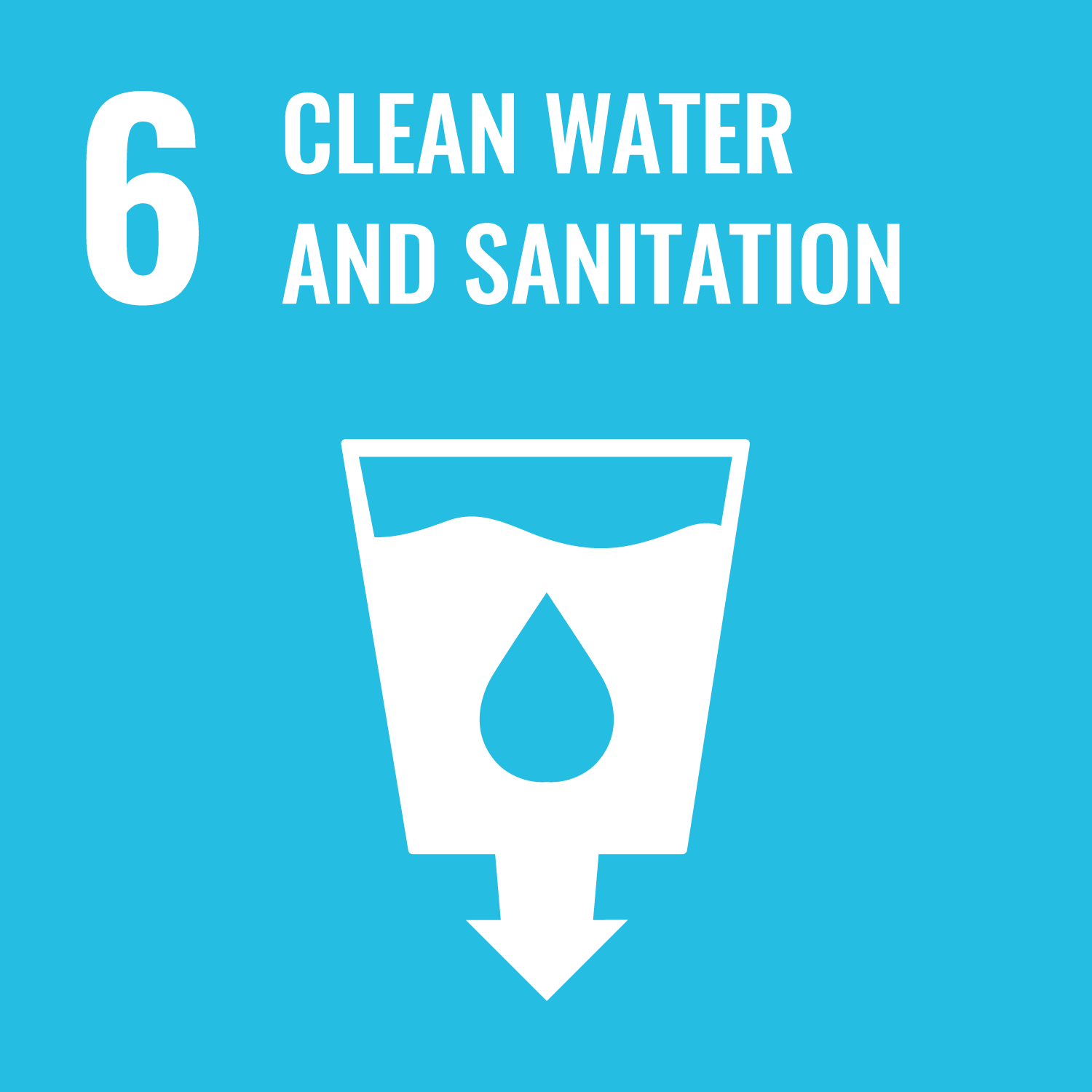
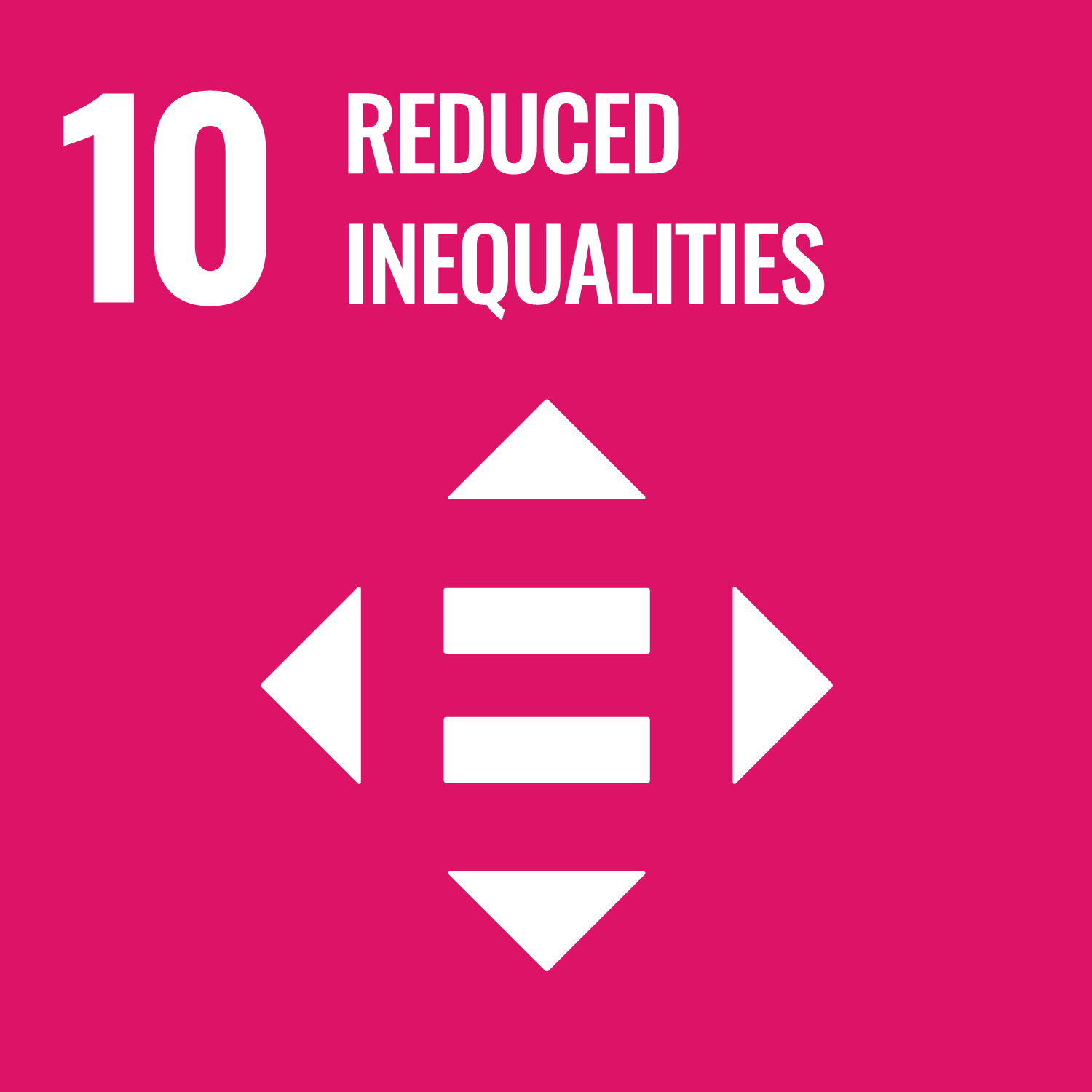
How to Apply
Create profile
Submit application
Hear back from CFHI team
Complete pre-departure training and requirements



Let The World Change You
